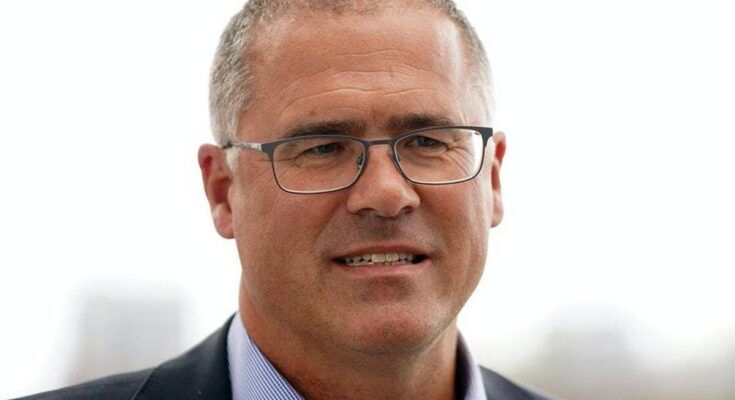By Huzaifa Yousafzai
ECB Chief executive Richard Gould believes that “we have to let clubs and counties fly” amidst talks over private investment being introduced into the English game.
Gould believes that English cricket has to become more attractive to the world’s top players in order to further improve the standard of play across the domestic game.
“We want to see the very best players playing in all of our domestic competitions, both men and women, county and franchise. And so the more talent the better if it increases the quality that we’ve got.”
“We’ll be able to make sure we retain and attract all the best players in the world and have a game that either broadcasters, supporters or new fans want to be involved with.”
However, many critics claim that this talent will only been seen at the top and won’t filter down the pyramid such that the gap between bigger clubs and smaller ones will only widen. Gould describes this notion as “A totally mad conspiracy” theory.
“I don’t see a world in which the same six clubs, or the same eight clubs are the ones that are constantly getting those opportunities.”
“The way that our sport is organised and governed, everything under one umbrella, does allow us to make sure that any money that is available is invested in the area that is most appropriate and where we’ll get the most return.”
Critics also believe that private investment will in fact end up removing some clubs from the pyramid, particularly those such as Middlesex, Gloucestershire and Essex.
Middlesex had recorded a loss of £952,000 only as recently as last year, whereas Gloucestershire may be forced into selling their ground to stay afloat. All whilst Essex have found themselves facing legal fees of up to £760,609 following their historic racism scandal at the end of 2023.
Despite this, Gould stands firm that reducing the number of clubs has not been considered and that he doesn’t “see any backward step in terms of 18 first-class counties.”
“I’ve been in the game 20-odd years and that conversation has always been around, but we’re the one professional sport that hasn’t lost a club [in England] and we’ve been going 140-odd years. Look at rugby and football. We’ve done extremely well as a sport to maintain that 100% record, and that’s where our intent lies.”
“In five years’ time, I really do think we will have 18 first-class counties.”
Gould also goes onto to add how keeping the number of the clubs the same will help to keep the amount of talent as high as possible and be a positive for the quality of the cricket.
“The depth of our talent pool, both in terms of men and women, is our superpower at the moment. You can see that having more teams and more players and more depth to our talent pool is ideal.
Recently, Durham’s CEO Tim Bostock called certain club members “Luddite” in a book about the state of county cricket. A claim that that Gould is strongly against and further gives support to members owned clubs.
“There are not comments that I would recognise or agree with. This is not our feeling, not our perception. So no, they’re not helpful comments. I think the Luddite comment was from about 18 months ago.”
There are around 60,000 members across the country belonging to 15 of the 18 first class counties of which Durham, Hampshire and Northamptonshire are not included.
“Most of our counties are privately-owned members clubs. That has provided a great stable base for a number of decades but, sometimes, in order to be able to compete on a global scale we need to bring in private investment also.”
Speaking at a launch event at the Kia Oval, Gould speaks on how the ‘Hundred’ could be used to bring in this investment, possibly from foreign investors.
“There is a strong consensus that we would like to see private investment come in through and into the Hundred, (it) is a good vehicle for private investment to come into the game.”
“There’s a very strong consensus that should be through investment into the teams rather than the central competition. And now we’re working through the options of what that could potentially look like in terms of how control revenue capital is shared.”
Private investment is now a bigger factor in the majority of the cricketing landscape than ever before. Particularly in the Indian market, where multi-billion-dollar corporations own franchise cricket teams and have players earning millions of dollars for little over one month of work.
In regard to who these investors may be, Gould insists that it’s not just those from the subcontinent but also the USA and possibly domestic English owners as well.
“We will work that one through – our interests won’t just be with IPL franchises. We have got a lot of interesting sports owners from the States and from this country. So we’ll be looking at all those options.”
“The future of the Hundred is very strong in terms of ticket sales, broadcast interest, and franchise interest now in terms of third-party investors who are interested in it.”
Although the interest has been made clear, a timeframe for it has not. Instead Gould believes taking time would be a better option than a rushed process.
“We’re not putting huge deadlines on it, no, because I think the game has suffered from divisions over the last five or six years.
“We would rather take a bit of time in order to get to the conclusions that we think the game is seeking rather than rush people because we think in doing that, we can frankly create more value with a game that is operating as one.”
Gould concludes by saying that the best possible solution for the English game would be a compromise between all parties that allows both financial gain as well as traditional values staying intact.
“It might be a partnership, and that is a really key word, because if it is and it is always invested back into the fabric of our game then those are the key components; but ultimately we still want the English game to be incredibly strong in 50-100 years.”



